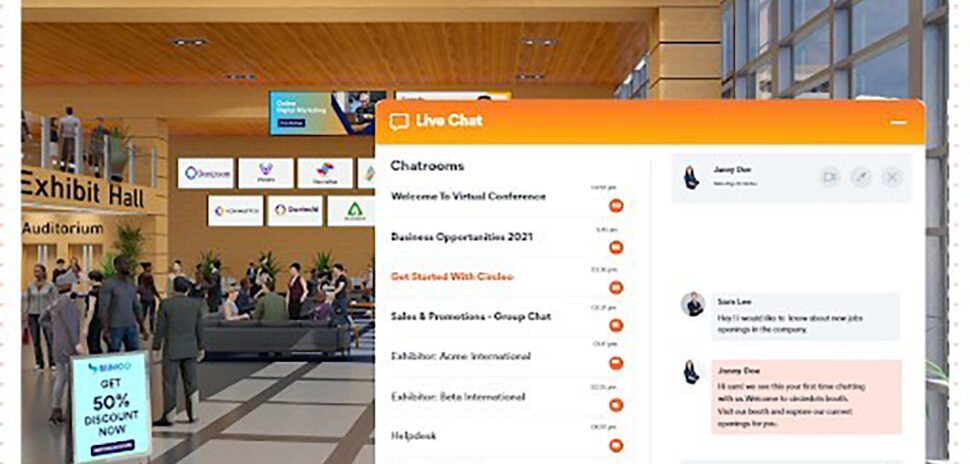When Dayakar Puskoor was looking for early-stage funding in the mid-1990s for JP Mobile, the Farmers Branch startup he co-founded, he didn’t have to travel far to talk to big names about investing.
A group of venture capital firms had offices on the 16th floor of a Galleria office tower in North Dallas. The biggest of the bunch, Sevin Rosen Funds, had in the 1980s helped bring personal computers to consumers by backing Houston’s Compaq Computers. Sevin’s sometime rival, Austin Ventures, was active in North Texas, having pioneered PC retailing through investing in Dallas-based CompUSA.
“Dallas-Fort Worth was known for [Richardson’s] Telecom Corridor, and we had big VCs on the 16th floor,” says Puskoor, who sold JP Mobile in 2005 after raising $55 million. “Most of them are not in Dallas now.”
Indeed, Sevin and Austin Ventures are no longer making new investments in startups. After the tech bust in 2001, most East and West Coast venture firms closed their offices in the middle of the country to focus on deals closer to home.
“The big shift is from professional to amateur investments.”
Alexander Muse
But while the institutional herd may have largely stampeded out, young companies can still find seed and first-round infusions in the region. “The big shift is from professional to amateur investments,” says Alexander Muse, who has been doing startups locally since the late 1990s. “Entrepreneurs across the state are raising capital each day for their early-stage startups from Texas-based investors.”
Unlike when Puskoor first started raising money, North Texas now has a number of angel groups—bands of wealthy individuals who invest anywhere from $10,000 to a few million dollars in early-stage deals. In 2011, for instance, Golden Seeds, which invests in women-owned and -run companies, opened a Dallas chapter. With fewer venture capital firms operating between the coasts, the slack has also been picked up by family offices, which run the business affairs and investments for the wealthy.
“[Family office] principals can change the trajectory of early-stage businesses with their expertise and networks.”
Aaron Pierce
“They are unrestricted in check size, have infinite time horizons and aren’t limited to a particular type of investment strategy or focus,” says Aaron Pierce, managing director of JF2 Capital. The Dallas firm is the family office and venture investment vehicle for Jon Frankel, a wealthy Dallas based serial-entrepreneur. The relative operating freedom of family offices allows them to be creative in handling the terms and structure of their investments, Pierce says. “Their principals can change the trajectory of early-stage businesses with their expertise and networks,” he adds.
JF2 is somewhat unusual among family offices in that it keeps a relatively high profile, including a website.
Behind the scenes
With a few exceptions, most of DFW’s 23 billionaires (per Forbes) prefer to keep details of their business operations quiet, starting with who runs them. That is primarily to avoid a flood of investment proposals which are either outside their areas of interest or simply aren’t viable.
Like many investors with large cash hoards, people who run family offices generally rely on their networks of contacts to refer deals.
Be they lawyers, investment bankers or friends, those referral sources know what opportunities a given family wants to see. They also act as preliminary screeners, filtering out problematic deals.
READ NEXT Raising Money: Four Rules for Finding Dough in DFW
Still, the coastal concentration of startup funding in the United States means a better investing landscape for local VCs like Puskoor, who now runs Irving-based Naya Ventures. “Early-stage businesses here run efficiently, and the ones with experienced founders tend to be more efficiently priced in comparison to their West Coast counterparts,” he says. “In that sense, Dallas is a hidden gem for business-to-business startups.”
The difference
With fewer venture firms in DFW, local institutional investors—those whose business is putting other people’s money into deals—have increasingly shifted to bigger transactions involving more established companies, according to Brandon Allen, a partner in TXV Partners. “Most of the financial institutions here are in private equity, growth equity, and hedge funds,” says Allen, whose Dallas-based firm supports millennial-targeted startups.
“[Startups] often must compete against investing in different asset classes.”
Brandon Allen
Compared to the East and West coasts, startups have to work harder to get in front of investors in North Texas. He adds, “And they often must compete against investing in different asset classes.”
But while DFW may have fewer early-stage investors than it did during the 1990s tech boom, it also has a plethora of new organizations that help people create both inventions and the businesses to commercialize them. Aside from the 40+ incubators and accelerators and makerspaces, like Dallas Makerspace, Dallas-Fort Worth now has corporate innovation centers where inventors can leverage big companies’ technology.
Those innovation centers range from traditional powerhouses like IBM and Microsoft to industry-focused incubators such as Hunt Energy Enterprises, an arm of Dallas-based Hunt Enterprises. In addition to helping entrepreneurs get their dreams into fundable form, these organizations can be conduits to corporate venture groups for North Texas-based corporations such as 7-Eleven and AT&T.
“Capital is structured differently than before,” says Vanessa Camones, venture principal at Tech Wildcatters. Camones, a Silicon Valley-based executive who tells North Texas’ entrepreneurial story in other cities, says, “There are more power angels, more corporates that have venture funds that didn’t before.”
Another difference in the local early-stage capital flow is the region’s interplay between wealthy residents and what USA Today reports is its 22 Fortune 500 headquarters. “We’ve got an immense amount of capital here, with a large portion residing in the established family office community,” says Pierce of JF2. “Our region provides a great opportunity for companies in enterprise software and business-to-business models looking for large corporations to use their solutions or become their first customers.”
“There is no other city on the planet with more opportunities to invest in quality ventures than Dallas.”
Doug Deason
Dallas-Fort Worth’s strength in distribution and logistics has historically provided opportunities for Dallas-based Deason Capital Services, as have manufacturing and processing companies that rely on those industries. Deason Capital is the family office of Darwin Deason, who founded Affiliated Computer Services before selling the Dallas business to Xerox in 2010 for what Forbes reports was $6.4 billion. Doug Deason, Darwin’s son and president of Deason Capital, says, “There is no other city on the planet with more opportunities to invest in quality ventures than Dallas.”
The players
Once entrepreneurs have tapped out their credit cards, and friends and family, they usually look for angel investors. But even among the 23 or so billionaires in DFW, few have the startup cachet of Dallas Mavericks owner and Shark Tank cast member Mark Cuban.
“I think there are great deals here in Texas.”
Mark Cuban
Cuban reportedly cleared $1.7 billion by selling the Dallas startup he co-founded, Broadcast.com, in 1999. His Dallas-based group of businesses today spans dozens of companies. “I think there are great deals here in Texas,” Cuban says.
But he isn’t the only local angel to see success.
Green Park & Golf Ventures, which compiles individual investors’ money into infusions for health care- and life sciences-related businesses, got a payday with the 2017 sale of another Dallas organization, CancerGene Connect.
Green Park and Tech Wildcatters were among investors whose combined $1 million gamble on the UT Southwestern spinout turned into a $6 million exit via California’s Invitae Corp., according to PitchBook, a supplier of data on funding and mergers and acquisitions. (A Green Park official did not respond to a request for comment.)
Meanwhile, Tech Fort Worth, a nonprofit that in 2018 celebrated its 20th anniversary of helping grow startups, has helped create some of the best exits since 2015 among area investors that PitchBook tracks.
Tech Fort Worth and participants in one of its programs, the Cowtown Angels, helped turn the combined $12.3 million raised by one of the incubator’s portfolio companies, Encore Vision, into a $465 million sale in January 2017 to eyecare giant Novartis AG, according to PitchBook and the Fort Worth Star-Telegram.
“The opportunity to play a role in the Dallas startup ecosystem is a great way to reinvest in the community and help the next generation of area entrepreneurs.”
Joe Beard
And in November, a California business that Tech Fort Worth incubated, ZS Pharma, was acquired for $2.7 billion by AstraZeneca, a large drug maker.
In addition to Tech Fort Worth’s role in getting ZS off the ground in 2009, the company also received funding from the Texas Emerging Technology Fund, which invested taxpayer money in promising startups, according to the nonprofit’s website.
Beyond angels, some members of the usually low-key family office community have adopted higher profiles—and importance. “The opportunity to play a role in the Dallas startup ecosystem is a great way to reinvest in the community and help the next generation of area entrepreneurs,” says Joe Beard, partner at Dallas-based Perot Jain. Founded by a pair of prominent North Texas businessmen, Ross Perot Jr. and Anurag Jain, the firm has invested in 35-plus early stage companies, including DFW notables PICKUP, Shiftsmart, Spacee, and Noiseaware.
Though Perot Jain does not typically lead deals—meaning they aren’t the first money in a deal—the firm now plays a key role in providing seed funding for area startups. Beard praises area organizations that help educate founders of early-stage companies, such as Capital Factory, the Dallas Entrepreneur Center, and UTD. “This is a great trend that needs to continue,” he says.
Deason Capital has also evolved into a player with pull, given its willingness to tackle investments of different sizes and industries. For instance, Doug Deason was the lead investor in Flower Mound’s Funimation Productions, a distributor of Japanese anime that sold to Sony Pictures Television Networks in 2017 for $143 million, according to Variety.
Emerging venture firms such as TXV and Naya, meanwhile, are carving out niches in growth areas. TXV recently led a seed round in Austin’s Matter Music, according to Crunchbase, while a pair of Naya portfolio companies, GlobalOutlook and Motivity Labs, have locations in both DFW and India. “Like anywhere, startups in India need help in getting customers,” Puskoor says. “Dallas is one of the great cities for young businesses looking for enterprise clients. Our location and relationships with many of these large firms is helping our companies gain traction quickly.”
And though they may not get as much press as generalist venture capital, industry-focused investors in North Texas are hitting some of the longest home runs.
A Dallas business that Hunt Energy Enterprises incubated, Motive Drilling Technologies, turned $10.5 million from a group of investors into a nearly $100 million sale to Helmerich & Payne in 2017, according to PitchBook and a press release.
One of the most successful niche investors in these parts is Ray Hemmig of Retail & Restaurant Growth Capital, or RRGC, a 20-plus-year-old entity that invested growth capital in the likes of Quiznos, Uncle Julio’s Restaurant, and Elizabeth Arden Red Door Salons. “I invested in Snappy Salads, a fast-casual restaurant business created by a former associate of Brinker International,” says Ray Hemmig, RRGC’s chairman. Having launched the Dallas-based concept in 2006 as a healthier alternative for time-pressed locals, Chris Dahlander has just opened an Allen location, the chain’s 18th.
The future
Despite the operating advantages startups have in DFW, it can be easy to feel envious when reading of mega deals taking place elsewhere. In 2018, more than 80 companies worldwide received valuations of at least $1 billion in private funding rounds, according to PitchBook. None of those unicorns were based in Texas. Nor were any of the 50-plus in the 2017 class, PitchBook data show.
Since 2015, the largest venture capital deal in North Texas was the $180 million first round that Dallas security company StackPath raised in 2016, per PitchBook.
Through early December, 2018’s largest VC infusion locally was a $100.5 million early-stage investment in Hedera Hashgraph, a Richardson-based firm whose website says its technology allows people who don’t know or trust each other to securely collaborate and transact business.
“A $1 million to $2 million round can give a business here a two-year runway. That’s impossible in Silicon Valley.”
Vanessa Camones
As veterans of the last decade’s tech bust can attest, other cities’ unicorns may seem less mythical when the next downturn inevitably hits and valuations shrink. “Funding sizes can be smaller here because the cost to run a company is less,” Camones says. “A $1 million to $2 million round can give a business here a two-year runway. That’s impossible in Silicon Valley.”
Still, experts like Camones say the DFW business community must come together to build infrastructure that cutting-edge startups need to grow. Beyond adding funding sources, the region also needs more service providers, such as lawyers and bankers, who can guide entrepreneurs who seek to change how the world works, experts say. “The fragmented Dallas startup ecosystem must take on an identity, with market leaders working together,” says Beard. “The region must consistently produce and highlight notable exits. Success will drive interest and capital from outside Dallas-Fort Worth.”
Texas and DFW are well-suited for startups in technology, including in medical and life science areas, according to Scott Letier, managing director at Deason Capital Services. “But these industries need the most help—early-stage capital being the No. 1 need,” he says.
In keeping with North Texas’ can-do attitude, efforts are underway to improve the lot of locals who start moonshot businesses. Though details are largely under wraps, Tech Wildcatters in 2019 will launch a pilot program aimed at connecting entrepreneurs with resources they need, both in North Texas and in other cities, Camones says. Corporate alliances will be what helps them get to the next level, she says.
Read it online
Dallas Innovates 2019—The Magazine explores the region as a rising tech hub that will shape the future of innovation. The theme of our second annual print publication, “A Breakout Moment,” explores why now is the time for the region to grab its place in the tech universe.
![]()
Get on the list.
Dallas Innovates, every day.
Sign up to keep your eye on what’s new and next in Dallas-Fort Worth, every day.





























